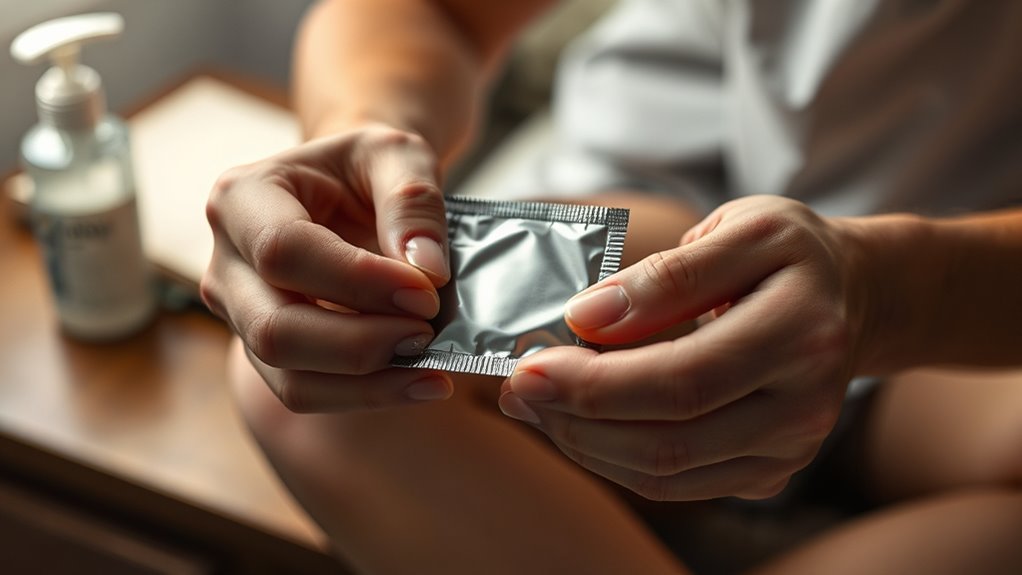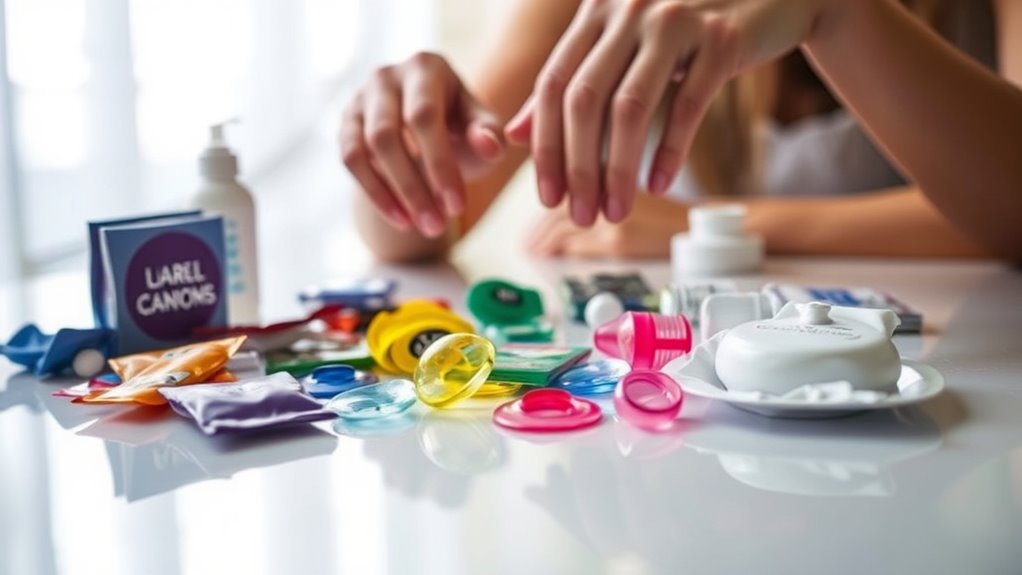After your partner cheats, you should get tested for STDs immediately to know your current health status. Use condoms consistently to protect yourself during any sexual activity, and discuss testing openly with your partner to promote accountability. Remember, many STDs can be symptomless, so don’t rely on your partner’s words. Early detection and treatment are essential for your safety. If you want more guidance, you’ll find helpful tips to keep yourself protected.
Key Takeaways
- Use condoms consistently and correctly during all sexual activity until both partners are tested and cleared.
- Schedule STD testing immediately after discovering infidelity, regardless of symptoms.
- Encourage open communication with your partner about testing and sexual health history.
- Consider retesting after the appropriate window period to confirm negative results.
- Maintain overall health practices, including regular check-ups and safe sexual behaviors, to minimize risk.

Are you doing enough to protect yourself from STDs? After discovering that your partner has cheated, your first instinct might be to feel betrayed, angry, or confused. But amidst those emotions, it’s essential to focus on your health and take immediate steps to safeguard yourself. One of the most effective ways to do this is by practicing condom usage consistently and correctly. Condoms are a proven barrier method that substantially reduce the risk of transmitting or contracting STDs, including HIV, chlamydia, gonorrhea, and syphilis. Even if your partner claims to be clean, it’s wise to use condoms until both of you undergo testing to confirm your statuses. Remember, many STDs can be asymptomatic, meaning your partner might not even know they’re infected, so relying solely on their word isn’t enough.
Getting STD testing should be your next priority. It’s essential to schedule testing as soon as possible after discovering the infidelity. This isn’t just about protecting future partners but also about understanding your current health status. Many STDs can be asymptomatic for weeks or months, so testing provides clarity and peace of mind. Visit a healthcare provider or local clinic that offers confidential testing options. Many places provide rapid tests or same-day results, so you won’t have to wait long to find out your status. If you test positive for any STD, early detection allows for prompt treatment, reducing the risk of complications and transmission to others. Even if your test results come back negative, it’s advisable to get retested after a window period, as some infections take time to show up in tests. Additionally, consider learning about air purifier technology, which can help improve indoor air quality and reduce airborne pathogens in your living space.
Using condoms during any sexual activity following the discovery of infidelity is a vital step in protecting yourself. It’s understandable to feel hesitant or distrustful, but taking these precautions is essential for your health. Don’t assume that your partner’s claims or their past behaviors are enough to guarantee safety; always prioritize your well-being. additionally, consider discussing with your partner about getting tested together, which can promote transparency and shared responsibility for health. Remember, STD testing isn’t just a one-time event—regular testing is a good practice if you’re sexually active, especially in situations where trust has been compromised. Protecting yourself from STDs requires vigilance, responsible choices, and proactive health measures. So, stay informed, insist on condom usage, and get tested. Your health is worth it, and taking these steps now can prevent long-term health issues down the line.
Frequently Asked Questions
How Soon Can an STD Test Detect an Infection After Exposure?
Early detection of an STD depends on the specific infection and the type of test used. Some tests can detect certain STDs within a few days, while others may require waiting weeks for accurate results. Testing accuracy improves over time, so it’s best to get tested as soon as possible after potential exposure and follow up with additional tests if needed. Consult a healthcare professional for personalized advice on timing and testing options.
Are There Any Symptoms That Indicate an STD Immediately?
You might feel a sudden burning or itching sensation, like a spark igniting in your groin, signaling early symptoms of an STD. However, many infections stay silent, making you asymptomatic. You won’t notice any signs right away, which is why regular testing is vital. Don’t rely solely on symptoms—early detection helps prevent complications and stops the spread, so stay vigilant even if you feel perfectly fine.
Can I Get Tested Anonymously for STDS?
Yes, you can get tested anonymously for STDs. Many clinics and health centers offer anonymous testing options, which help address privacy concerns. You won’t need to provide your name or personal details, ensuring your confidentiality. This way, you can focus on protecting your health without worrying about your privacy. Check local clinics or online resources to find anonymous testing sites near you and get tested confidently.
How Effective Are Condoms in Preventing All STDS?
Condoms are incredibly effective, but they’re not foolproof—like trying to stop a storm with an umbrella. While they greatly reduce STD transmission, condom limitations mean some infections can still slip through, especially with asymptomatic partners. To maximize STD prevention strategies, combine condom use with regular testing and open communication. This layered approach gives you the best chance at staying safe and protected.
What Should I Do if My Partner Refuses STD Testing?
If your partner refuses STD testing, prioritize your health by visiting trustworthy clinics that offer confidential testing. Encourage open communication and express your concerns calmly, emphasizing the importance of mutual safety. While you can’t force your partner to get tested, taking proactive steps guarantees you stay informed and protected. Remember, confidential testing helps you get accurate results without judgment, and seeking medical advice can guide your next actions.
Conclusion
Stay vigilant, stay informed, and stay proactive. Protect your health by getting tested, using protection, and communicating openly. Don’t assume, don’t ignore, don’t wait—take control of your well-being. Remember, your safety depends on your choices, your actions, your awareness. By staying cautious, staying prepared, and staying committed to your health, you can defend yourself against STDs and ensure a healthier future. Your safety is in your hands—make every step count.









